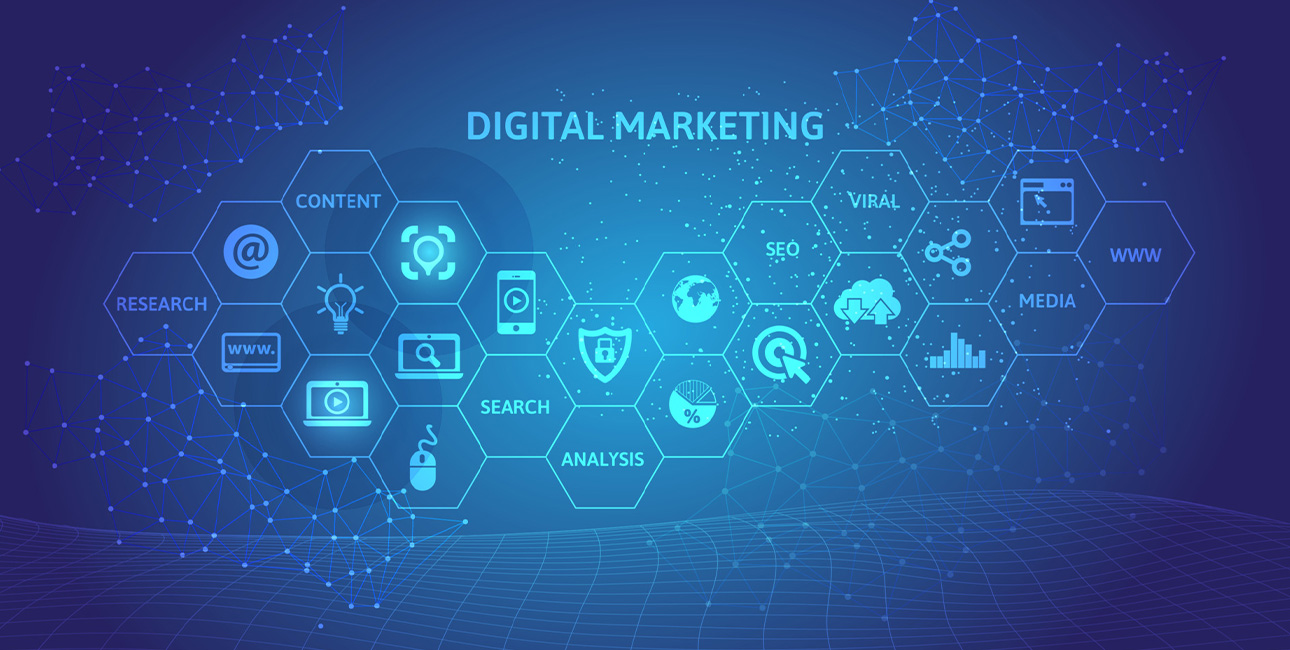
The digital landscape presents unprecedented opportunities for your business. Facebook commands over 2.9 billion users. Instagram reaches 2.4 billion, TikTok connects 1 billion, LinkedIn engages 1 billion, and X (Twitter) maintains 556 million active users. The potential for your brand? Enormous—when you have the right partner.
Here’s what matters: 81% of consumers make purchases influenced by friends’ social media posts, while 78% base buying decisions on brands’ social media content. These numbers reveal why selecting a marketing agency that understands your unique business needs drives success. Yet sorting through countless options and evaluating different marketing channels creates confusion for many business owners.
Finding the right digital marketing partnership doesn’t require complicated processes. You need to recognize what separates exceptional partners from average ones. Look for agencies that build custom strategies aligned with your specific objectives rather than recycling generic approaches. Results matter most—case studies and real-world examples should guide your decision-making process.
This guide covers everything you need to know about finding your perfect digital marketing partner in 2025. We’ll walk you through defining your business goals, spotting warning signs, and asking the right questions during your selection process.
What do you have in your mind? Let’s make this decision simple and effective for your business.
Define Your Business Goals First
Your business objectives serve as the foundation for every marketing decision. “I want to grow my business” won’t guide effective strategy. Each business is different, so are the problems. That is why successful partnerships start with clear, specific goals.
When marketing teams work separate from business objectives, it creates inefficiency, slows growth, and puts budgets at risk. We’ve seen this pattern repeatedly—vague goals lead to scattered efforts and disappointing results.
Brand awareness vs. lead generation
Do you need more recognition or more customers? This question shapes your entire marketing approach. About 45% of marketers prioritize brand awareness, while 36% focus on lead generation.
Brand awareness campaigns build recognition and trust. Your brand stays top-of-mind with potential customers. This matters because approximately 95% of potential customers are out-of-market at any given time.
Lead generation targets immediate engagement. These campaigns connect you with interested buyers through specific calls to action that provide direct value. They drive early adoption when you introduce new products.
Here’s what works: these strategies complement each other. They work together to fill your sales pipeline. Smart businesses don’t choose one or the other—they balance both approaches.
Headlines don’t just attract readers—they fundamentally shape how people process everything that follows. Psychologists have discovered that what we experience first colors our perception of all subsequent information. Your headline frames the entire reading experience, activating specific knowledge in the reader’s mind before they even reach your first paragraph.
Short-term vs. long-term objectives
Short-term strategies deliver immediate gains through paid advertising and quick-win tactics. These create essential touchpoints along your customer journey.
Long-term strategies build sustainable growth over time. They establish your brand voice, position you as an industry expert, and create lasting results. They require consistent effort but prove more cost-effective over extended periods.
Balance matters most. Research suggests allocating approximately 46% of your B2B budget to brand building and 54% to activation. This split maximizes both immediate returns and long-term growth.
How goals shape your digital marketing partnership
Clear objectives guide every aspect of your marketing partnership. They help:
- Set realistic expectations for timelines and budgets
- Establish success metrics that matter to your business
- Create transparent communication with your marketing partner
- Align both teams toward common outcomes
Regular check-ins with your partner ensure your marketing relationship stays productive and focused on delivering measurable results. Without clear goals, even the best marketing agencies struggle to deliver value.
What sets successful partnerships apart? Clarity from the start.
What to Look for in a Digital Marketing Partner

Finding the ideal digital marketing partner goes beyond impressive presentations and competitive pricing. The right partnership becomes an extension of your team, turning marketing challenges into growth opportunities.
Proven track record and case studies
Results speak louder than promises. When evaluating potential partners, examine their portfolio, case studies, and client testimonials to understand real achievements. Ask for metrics that matter—increased traffic, improved conversion rates, or higher return on ad spend. Request detailed case studies highlighting their content creation abilities and SEO/SEM expertise. A digital marketing partner with demonstrated success for businesses similar to yours builds confidence they’ll deliver comparable results for your brand.
Industry-specific experience
Industry knowledge proves particularly valuable in highly regulated sectors like healthcare, finance, or technical industries. Partners with relevant experience understand your audience’s pain points, preferences, and behaviors more naturally. However, fresh perspectives sometimes benefit businesses, especially when industries face change or need innovative approaches. Strong marketing fundamentals, adaptability, and eagerness to learn often matter more than specific industry experience.
Transparency and communication style
Brilliant marketers provide little value when communication breaks down. Expect responses within 24 hours on all calls and emails. Look for agencies that maintain transparency about their processes, billing structures, and any challenges that arise. Regular business reviews examining past performance and outlining future roadmaps show accountability. Great partners push back occasionally and challenge your thinking rather than agreeing with everything.
Use of analytics and reporting tools
Professional marketing partners perform thorough keyword research, competitive analysis, and interpret analytics data to identify improvement areas. They should provide clear, accessible reporting that connects marketing activities to business outcomes. Automated marketing reports that centralize client data save time and provide clearer insights. Most importantly, they should help you understand what the data means for your business—not just present numbers.
Cultural and ethical alignment
Each business is different, so are the partnerships that work best. Selecting a partner whose values align with yours creates a foundation for long-term success. Cultural compatibility affects approximately 15% of your marketing budget through potential misunderstandings and disagreements. Ethical partners prioritize honest advertising, transparent communication, responsible data management, and respect for customer privacy. They focus on building trust through sustainable practices rather than quick wins through questionable tactics.
What sets exceptional partners apart? They understand that successful marketing hinges on understanding what works—and what doesn’t.
Red Flags to Watch Out For
Recognizing warning signs early saves you significant time and resources when selecting a digital marketing partner. The stakes are real—advertisers wasted over $71 billion on invalid traffic in 2024 alone, representing a 33% increase from 2022.
Guaranteed results promises
Avoid agencies promising “instant results” or claiming they’ll get you to “#1 on Google in 30 days”. Real marketing success requires time, testing, and continuous optimization—not magic solutions. Agencies offering “guaranteed results” focus more on closing deals than delivering value. Meaningful growth cannot happen within unrealistic timeframes.
One-size-fits-all strategies
Quality partners start by asking detailed questions about your customer personas, business model, and past marketing challenges. They create strategies unique to your situation. Cookie-cutter approaches fail because 60% of millennials expect consistent brand experiences, yet many agencies still recycle generic solutions across different clients.
Vague or infrequent reporting
Examine sample reports before committing—do they show meaningful metrics or vanity statistics? Watch for dashboards that highlight impressions while hiding spending data, making it impossible to determine actual profitability. Demand access to comprehensive performance data beyond basic analytics.
How to Evaluate and Choose the Right Partner
You’ve narrowed your options. Now comes the critical decision-making process that determines your marketing success.
Requesting proposals and comparing offers
Create a clear budget that works for your business before requesting proposals. Smart businesses ask potential partners to break down costs completely—you need to understand exactly what you’re paying for.
Compare proposals based on substance, not flashy presentations. What’s actually included? How many page templates, ad concepts, or integrations? Did they personalize content to your specific business needs and ask insightful questions about your goals? Their proposed timeline should align with your needs while remaining realistic.
Asking the right questions during discovery calls
Discovery calls serve as structured conversations to determine business fit. Prepare thoroughly—research their website, social media, and competitors beforehand. This demonstrates initiative and leads to smarter questions.
Effective discovery calls follow logical flow: rapport-building, qualification questions, addressing objections, and securing clear next steps. Focus on listening actively rather than overwhelming sales pitches. Your strategic questions should determine if they’re serious and have sufficient expertise for your budget.
Checking reviews and third-party ratings
Read client reviews on platforms like Clutch, Google, and DesignRush. Count stars, but read comments for mentions of responsiveness, ROI, and transparency.
On Clutch, look for agencies with high ratings for project management, responsiveness, and ability to deliver on time. Check if the agency ranks well on Semrush—high rankings often indicate proven SEO expertise.
Testing with a short-term project first
Consider testing potential partners with small projects before committing long-term. Some agencies offer free trials—like one-week service tests—allowing you to evaluate their work style without significant investment.
This approach helps determine cultural fit. Your teams will need to collaborate closely. Have your internal team meet potential partners before making final decisions—first impressions provide valuable insights.
Smart evaluation leads to partnerships that deliver measurable results for your business.
Partner with us and watch your business grow!
Selecting the perfect digital marketing partner represents a strategic business decision that shapes your brand’s future success. This relationship will impact your digital presence and bottom line for years ahead. We believe that progress only happens when you refuse to play things safe.
Your clearly defined business objectives serve as the foundation for everything that follows. Quality partnerships begin with thorough research and careful evaluation of potential agencies based on their track record, communication approach, analytical capabilities, and alignment with your company values.
Each business is different, so are the problems. That is why we do not deal with cookie-cutter solutions. Exceptional marketing partners customize their approach specifically for your business needs rather than recycling standard strategies. They provide transparent reporting that connects marketing activities directly to business outcomes.
Warning signs deserve your attention during the selection process. Agencies promising guaranteed results or offering generic solutions often fail to deliver meaningful growth. Vague reporting practices might conceal performance issues that drain your marketing budget without returns.
The evaluation process requires patience and attention to detail. We recommend requesting detailed proposals, asking insightful questions during discovery calls, examining third-party reviews, and testing potential partners with smaller projects before making long-term commitments.
We’re not just focused on short-term wins; we aim to build long-term success for your business. Your perfect marketing partner acts as an extension of your team, turning digital marketing challenges into opportunities for sustainable growth. The right partnership will enhance your marketing capabilities and help you achieve your strategic vision.
What sets us apart? Expertise that drives results and customized solutions that work for your unique situation.
Let’s make something great together!




